By Lyle Daychild, BSW
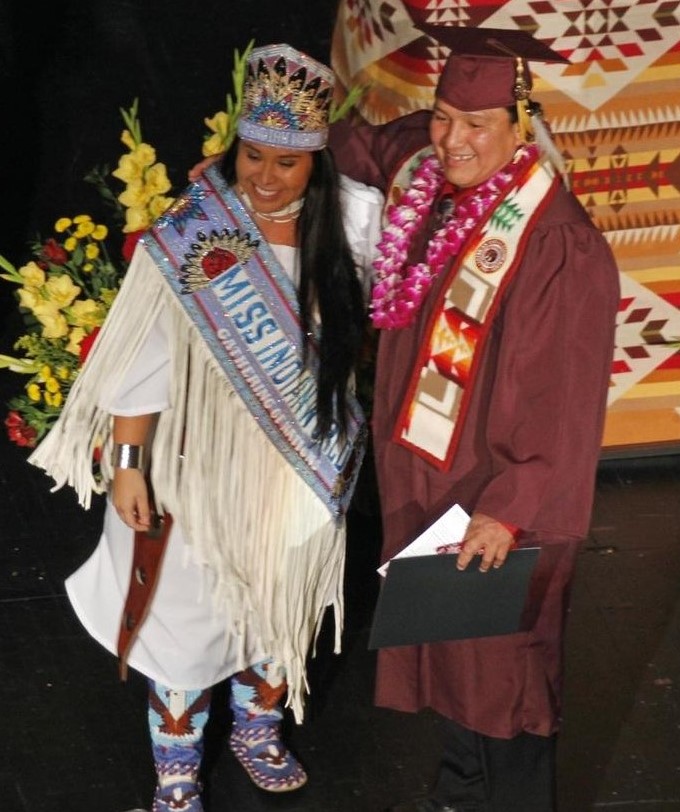
American Indian Convocation, May 11, 2016
I graduated with my Bachelors of Social Work degree from Arizona State University (ASU) on May 11, 2016. I participated in three separate graduation ceremonies- the School of Social Work, the American Indian Convocation, and the large university undergraduate commencement. Getting to graduation was challenging, to say the least. It was a battle I had to fight on multiple fronts, but ultimately I was victorious, which is why I walked in every ceremony that was available to me. Walking across those stages, and moving my tassel from right to left was gratifying and emotional.
This story doesn’t begin at graduation, though, it starts in 1976 when my mother, Norma Daychild, a single parent of three children moved us from the Hualapai reservation to Phoenix, Arizona. My mother wanted us to have a better education and access to other opportunities that were unavailable on our remote reservation.
My brother and sister took to school easier than I did- they both graduated from college and are successful. I, on the other hand, went down a different road and by 1985, at just sixteen years old, I was on my way to prison to serve a fifteen-year sentence for my involvement in a fight that ended with another person dead.
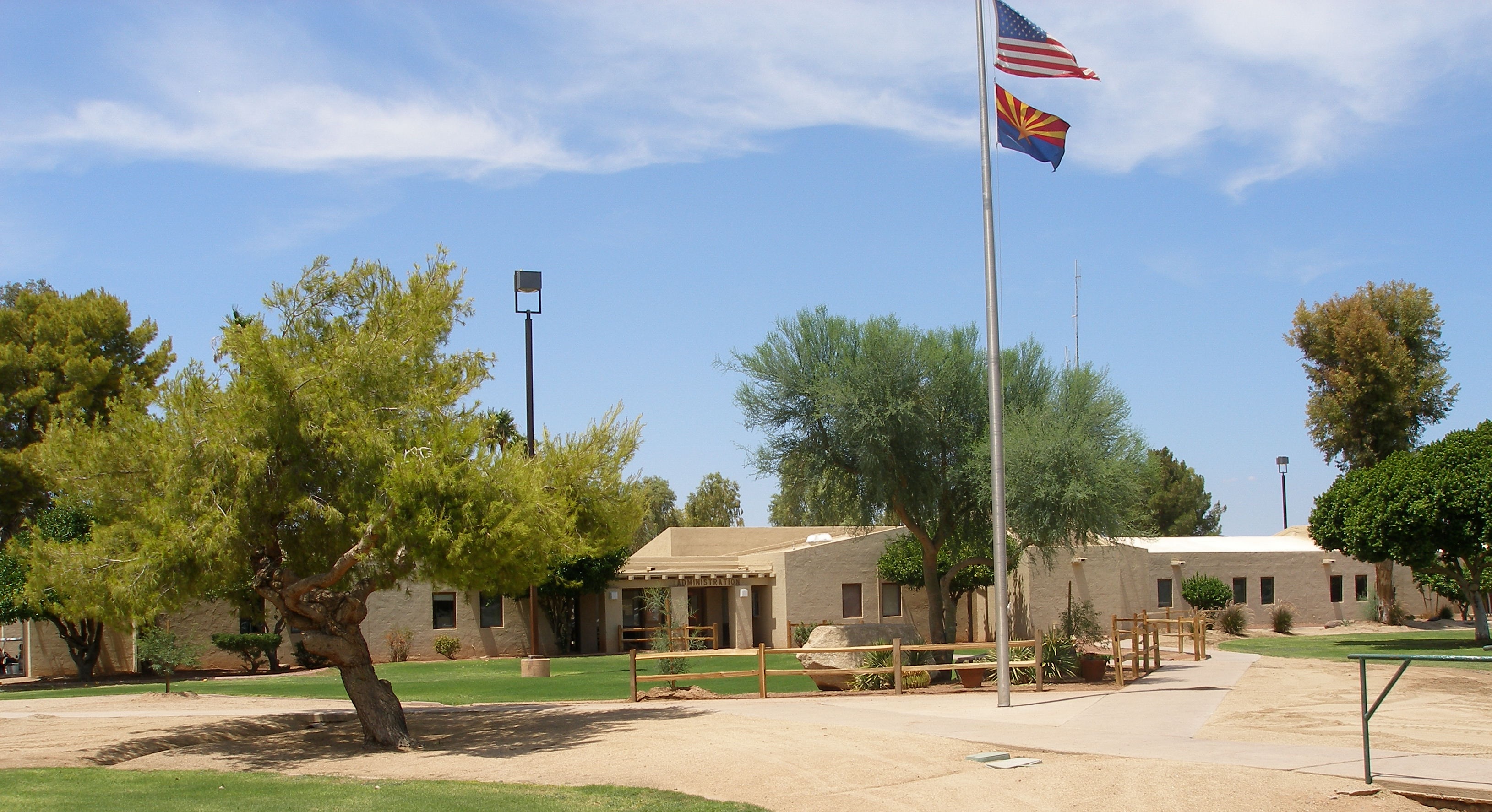
Arizona Department of Juvenile Corrections, Adobe Mountain School
While incarcerated at Adobe Mountain I got my GED and got the highest score of all the kids who tested. At the time I didn’t think this was significant, but reflecting on that achievement now- it was. I didn’t think it was a big deal because no one inside, not even the teachers considered it noteworthy. I got out in 1997 and returned again in 2003, 2009, and 2014. Prison was a revolving door for me. Throughout my many returns to prison and drugs, my mother was a constant source of love and support and I repaid her devotion by letting her down over, and over again. My mom passed away in 2009, I was able to attend her funeral before I was off to prison, yet again.
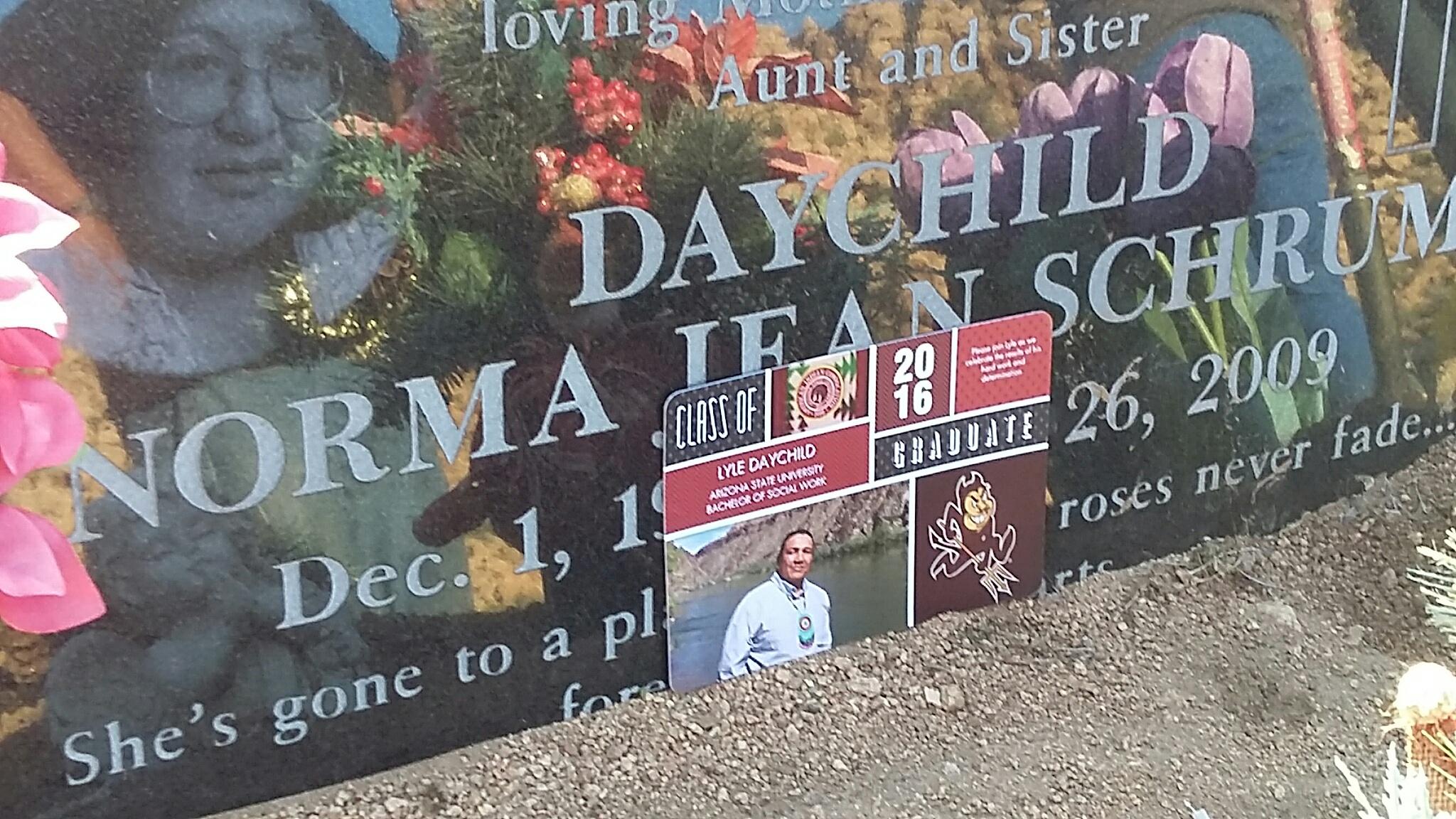
Norma Daychild’s gravesite
I was released from prison in 2010. Though I dreamed of going school and earning a bachelor’s degree, I didn’t think it would be worth my while because of my felony record. I had started and stopped school a few times at that point and had accumulated a good amount of college credits. My mother left each of her children some money after she passed, and my siblings urged me to use the money to go back to school. I thought about what I wanted to do, and what was pulling me, what continues to pull me, is working with “at-promise” youth and in developing community re-engagement programs for folks returning from prison. I thought social work was an ideal fit, and I made an appointment to speak with one of their academic advisors to explore the possibility. At the meeting, I was upfront about the extent of my past record. The advisor said that I would be an asset to the population I wished to serve. And so, my reentry into the world of academia began.
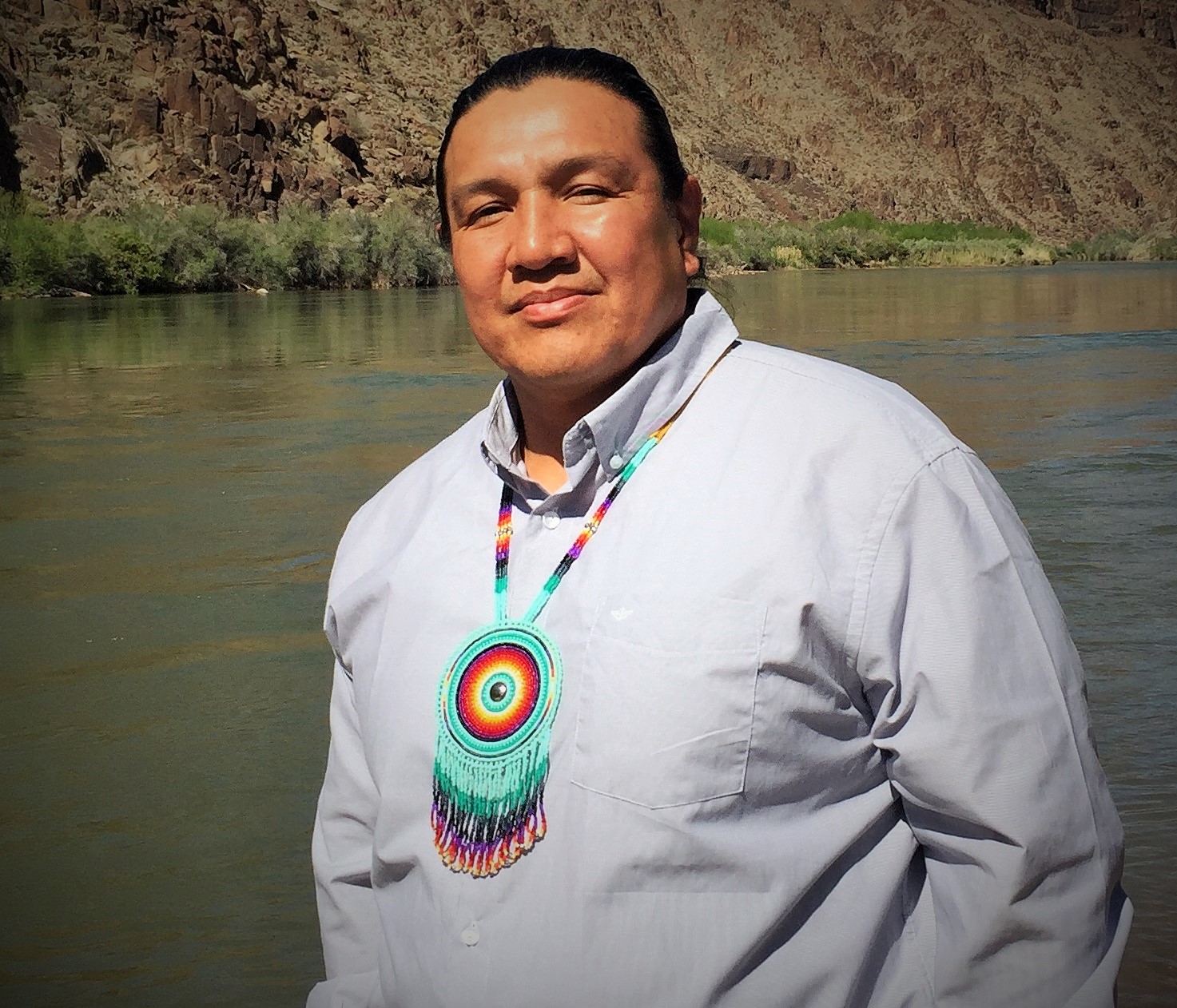
Lyle at the Hualapai Reservation 2016
I was admitted into ASU’s social work program in the fall of 2010- just months after getting out of prison. Though I had been in and out of the system since 1985, I had never addressed the underlying factors that led me to prison in the first place. I had never taken a hard look at my coping skills; namely, drug and alcohol abuse. I kept sabotaging my life and I never asked myself why. There was also never the opportunity to explore any of this in counseling or treatment during my years of incarceration. Those programs did not exist in prison.
At the beginning of the fall semester, I met with my field instructor for my internship placement. I was excited to begin the direct experience portion of my training and learn about what social workers do “on the ground.” Because I was honest about my record in the initial advisement session in 2010, and no concerns were raised, I was unprepared for my record to interfere with my being placed in a position- and without internship hours I would be unable to complete my degree. My field instructor closed our meeting by saying, “All you have are street smarts and no book smarts.” I was devastated. There were no parting words of encouragement that an internship would be found or that I would even have a career in this field.
Soon my thoughts turned to despair and self-loathing. I mean, who was I fooling? I couldn’t even get a “good” job in prison because I had been convicted of a violent crime when I was a child- and I thought I was going to be a social worker?! I fucked my life up and this is the way I was destined to live from here on out, as nothing more than my record. Even as I was on the cusp of completing my degree, my future seemed bleak. There wasn’t any encouragement from the school or any support group to help me process all of this in stride or create a plan for moving forward.
After an agonizing waiting period, I finally received an email from my field instructor letting me know they had found a possible internship placement. I was instructed to meet with a newly founded reentry program located in Phoenix, Arizona. Ironically, even though I had been in and out of the system, I had never heard of or been served by a “reentry program”. I thought the outpatient programs that I had been attending most of my life were the extent of the resources someone with a conviction history could receive. Overall, I was excited just to have been placed in an internship- it meant I would be able to complete my degree.
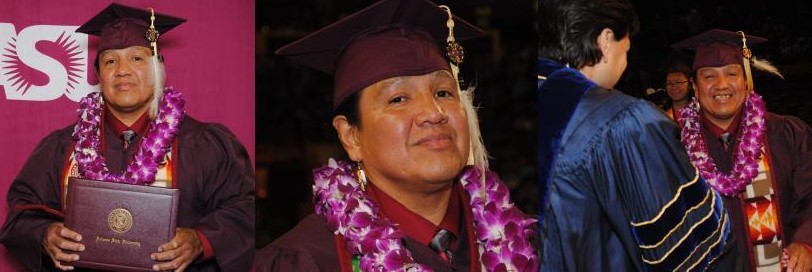
Arizona State University, Graduation May 2016
Graduating was a struggle. There were barriers that I could not anticipate, and sometimes I fell- but I got back up. Ultimately, I am glad I persevered because now I have a different piece of paper to add to my “record”. The reality is, that the population I wish to serve- whether it be young people trying to find their way, or a person reentering their community- are people like me. I want to be the support for other people that I never had. My years in the system exposed me to the inefficacy of system-led programming. What was missing were service providers who had personally experienced the roads their clients were traveling. I hope I can fill the void that exists in outreach and programming for formerly incarcerated people. I hope I get that chance to demonstrate my potential.
Categories: Uncategorized
Congratulations on completing your BSW program! I wish you the best and I hope you find your chosen field to be exciting and rewarding.I can totally relate to your journey, since I recently completed mine in May of 2015. There are resources to assist with getting fingerprint clearance to assist you in the job market. We have a lot of similarities in our history, so keep the faith and hope alive. God Bless!
Richard M Griffith
Congratulations Lyle. It was a struggle, but we can learn from our struggles. I look forward to seeing you walk across that stage again.
I am soooo happy you have changed your life around. I was excited to hear you were getting your degree from ASU two years ago. I wish you well in everything you strive to do. I know it wasn’t easy for you to get this far, but you did it. I always have you in my thoughts and keep you in my prayers.